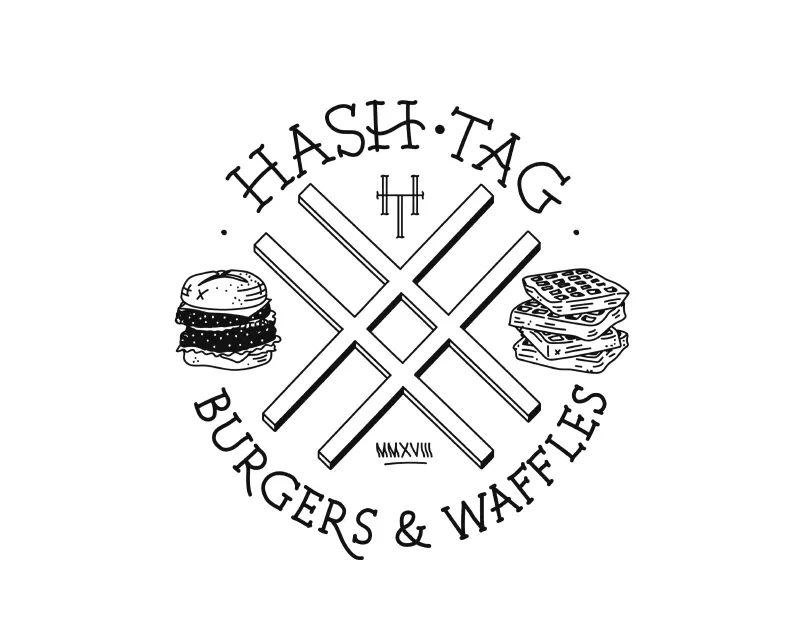Entering the fast food industry as a franchisee can be a promising venture, offering ready-made brand recognition and operational support. However, the process involves considerable strategic planning and a deep understanding of the market.
Potential franchisees must navigate financial, legal, and operational challenges to ensure a successful launch and sustainable growth. To successfully purchase a fast food franchise, you must evaluate different brands, assess your financial capabilities, secure necessary funding and meticulously follow the franchisor’s application process.
If you’re wondering how to buy a fast food franchise, it’s crucial to approach this opportunity with thorough preparation and informed decision-making. Read on to learn more about the process.
How To Buy A Fast Food Franchise? – A Brief Overview
Buying a fast food franchise is a multifaceted process that requires careful consideration and strategic action. Start by selecting the right brand that aligns with your business goals and has a strong market presence. This choice is critical as it impacts every facet of your operations, from customer traffic to overall profitability.
Next, secure the financing needed for the franchise fees and setup costs, which might involve traditional bank loans or franchisor-provided financing options. Conduct thorough due diligence to review the franchisor’s financial status and the track record of existing franchises. This step is vital to ensure that you are investing in a viable business.
Also, make sure to negotiate the franchise agreement with the help of a specialised lawyer to protect your interests, particularly concerning territory rights and renewal terms. Before launching, obtain all necessary licences and permits as per local, state, and federal requirements.
Finally, successfully launch your franchise by leveraging the franchisor’s proven marketing strategies and adding your unique touches to attract the local market. This structured approach will guide you through the complexities of becoming a successful fast-food franchise owner.
Join Our Franchise Family at Hashtag Burgers & Waffles
Hashtag Burgers & Waffles offers a unique opportunity to be part of a growing culinary trend that combines delicious innovation with solid business support. Our franchise model provides extensive training, ongoing operational support, and a proven marketing strategy that drives customer traffic. Dive into the exciting world of gourmet burgers and delightful waffles; become your boss with our robust franchise system.
Let’s discuss how you can be a part of this venture. Call us at 07 3569 5805 today or visit our franchise page to take the first step towards your entrepreneurial success.
4 Things to Know Before Buying a Fast Food Franchise
Before diving into the world of fast food franchising, you need to understand the fundamental aspects and challenges of the industry. The journey begins with a detailed assessment of what it entails to open and operate a fast-food franchise, setting the stage for a successful business venture.
Understanding Franchise Fees and Initial Investment
One of the first steps in buying a fast-food franchise involves understanding the financial commitment required. Prospective franchisees must consider not only the initial franchise fees but also startup costs and ongoing royalties. These expenditures cover brand usage rights, training, support, and sometimes marketing. Evaluating these costs helps in planning your investment and understanding the financial metrics of franchise operations.
Franchise Agreement and Legal Considerations
Navigating the legal landscape of franchising is another critical step. The franchise agreement outlines your relationship with the franchisor, detailing everything from operational standards to financial commitments and term length. Consulting with a franchise attorney can provide clarity and safeguard your interests, as well as ensure that you are fully aware of the obligations and protections within this binding document.
What’s included in the franchise agreement?
A franchise agreement is a legally binding document that outlines the terms and conditions between a franchisor and a franchisee. It is crucial in establishing the relationship’s framework and ensures both parties understand their rights, responsibilities, and obligations. Here are the key elements typically included in a franchise agreement:
- Franchise Grant: Defines the franchisee’s right to use the franchisor’s trademarks, service marks, business systems, software, and marketing techniques.
- Term of Agreement: Specifies the duration of the franchise agreement, including start and end dates, and details on the renewal process.
- Initial and Ongoing Fees: Details all fees that the franchisee must pay, including initial franchise fees, ongoing royalty fees, advertising fees, and any other required payments.
- Territory: Describes the geographical area in which the franchisee is allowed to operate and whether that territory is exclusive or non-exclusive against other franchisees or even the franchisor.
- Training and Support: Outlines the training and support the franchisor will provide, both initially and on an ongoing basis. This includes details on training programs, operational support, marketing assistance, and any additional support services.
- Operations Manual: States that the franchisee must adhere to the franchisor’s operations manual, a comprehensive guide to the daily operations of the franchise, including brand standards, personnel policies, and procedural instructions.
- Advertising and Marketing: Defines the franchisee’s obligations regarding local marketing and contributions to national marketing campaigns. It may also outline how marketing funds are managed by the franchisor.
- Products and Suppliers: Dictates any requirements or restrictions on where the franchisee can purchase equipment, supplies, and inventory. This often ensures consistency in product quality across all franchise locations.
- Sales and Performance: May require the franchisee to meet certain performance standards or sales targets. This section could also include how performance will be measured.
- Renewal, Termination, and Transfer: Covers the conditions under which the agreement can be renewed, terminated, or transferred. This includes outlining any breaches that could lead to termination and the process for selling or transferring the franchise to a new owner.
- Dispute Resolution: Specifies the methods for resolving disputes between the franchisor and franchisee, often including arbitration or mediation as alternatives to litigation.
- Intellectual Property: Explains the use of the franchisor’s intellectual property, ensuring that the franchisee understands the limitations and responsibilities associated with using the franchisor’s brand and proprietary information.
- Insurance and Liability: Requires the franchisee to obtain insurance to cover liability and other risks associated with operating the franchise.
Market Research and Site Selection
Selecting a prime location is paramount in the fast food industry. Thorough market research helps identify strategic locations with high foot traffic and demographic suitability for the brand. This stage involves analysing local competition, market saturation, and accessibility to ensure the chosen site offers the maximum potential for customer engagement and sales.
Training and Support Offered by the Franchisor
The level of training and support provided by the franchisor can significantly influence the success of your franchise. From initial training programs that cover day-to-day operations and staff management to ongoing support including new product introductions and marketing campaigns, understanding what the franchisor offers helps you align with brand standards and achieve operational excellence.
Step-by-Step Guide to Buy a Fast Food Franchise
Buying a fast food franchise requires careful planning and strategic actions. Each step is designed to ensure that you are well-prepared and positioned for success as you enter the fast food market.
Choose the Right Fast Food Brand
Selecting which brand to franchise with is a decision that affects all aspects of your business. Consider factors, such as the brand’s market presence, customer loyalty, and the overall alignment of the brand values with your business goals.
A strong brand will provide a competitive edge and attract consistent customer traffic. It’s essential to analyse the brand’s performance in the market, the uniqueness of its offerings compared to competitors, and its adaptability to changing market trends. Additionally, evaluating the brand’s commitment to innovation and customer satisfaction will further ensure alignment with long-term business objectives.
Secure Financing
For many, securing adequate financing is a critical step in the franchising process. Exploring options like traditional bank loans or even financing arrangements offered by franchisors themselves can provide the necessary capital to cover initial investments and ongoing expenses.
Effective financial planning ensures that your franchise can sustain operations and grow. It’s advisable to prepare a detailed business plan that outlines projected revenues, potential costs, and a pathway to profitability. This plan will not only help in securing financing but also serve as a road map for your franchise’s financial health.
Complete Due Diligence
Conducting comprehensive due diligence is vital. This involves examining the franchisor’s financial health, reviewing the performance of existing franchises, and understanding the overall market dynamics. This scrutiny helps potential franchisees make informed decisions and sets the foundation for a profitable business relationship.
In addition, delve into the franchisor’s history of litigation, bankruptcy, and success stories. Assess feedback from current and former franchisees to gauge their satisfaction and the support they receive from the franchisor.
Negotiate the Franchise Agreement
With the assistance of a specialised franchise lawyer, you can negotiate terms that better suit your interests, potentially including aspects of territory rights, renewal clauses, and exit strategies. This negotiation ensures that your legal and financial interests are protected.
Also, clarify every clause, from royalty fees to advertising commitments, and make sure that you have the flexibility you need to adapt to changing business conditions while maintaining the ability to exert some control over your operations.
Obtain Necessary Licences and Permits
Every fast-food franchise needs to comply with local, state, and federal regulations. This includes obtaining all necessary licences and permits required to operate legally in your locale. Ensuring all legalities are in order prevents future legal complications and sets the stage for a smooth operation. So take the time to understand the specific requirements in your area, which may include health and safety certifications, food handling permits, and business operation licences.
Launch Your Franchise
The final step is the launch of your franchise. This phase involves implementing the franchisor’s established strategies for starting a successful operation, including marketing plans and the grand opening event. Effective execution of this step can significantly impact the initial traction your franchise gains in the market.
When thinking about your launch, plan a launch that makes a splash in the local community, drawing on the franchisor’s proven marketing tactics and adding your localised strategies to maximise outreach and customer engagement from day one.
Benefits of Buying a Fast Food Franchise
Investing in a fast food franchise offers numerous advantages, providing a pathway to entrepreneurship backed by established brand frameworks and support networks.
Established Brand Recognition
One of the most significant benefits is leveraging established brand recognition. Franchisees capitalise on a brand that consumers already recognise and trust. This recognition provides a considerable advantage over starting a new brand from scratch.
Access to a Proven Business Model
Fast food franchises offer access to a proven business model that has been refined over the years. This model includes detailed operational procedures and marketing strategies that have been tested in various markets, reducing the risk commonly associated with new business ventures.
Training and Ongoing Support
Franchisors provide extensive training and support to ensure that franchisees are well-equipped to meet the company’s standards and succeed in their endeavours. This support ranges from initial training to continuous updates on operations and business management.
Marketing and Advertising Assistance
Another benefit is the sophisticated marketing and advertising strategies developed by the franchisor. Franchisees contribute to a national marketing fund which the franchisor uses to execute large-scale advertising campaigns, benefitting all franchise locations.
Purchasing Power
Franchisees often enjoy increased purchasing power for supplies and inventory due to the franchisor’s bulk buying capacity. This arrangement leads to lower costs and higher margins.
Network of Fellow Franchisees
Lastly, being part of a franchise system offers a strong network of fellow franchisees. This community provides a platform for sharing best practices, offering support, and fostering an environment of collective growth and success.
Wrapping Up
Starting the journey to own a fast food franchise is both exciting and daunting. Consider laying a solid foundation for your business’s success by meticulously following the steps outlined in this article, from choosing the right brand and securing financing to negotiating the franchise agreement and preparing for launch you. The process requires a significant commitment and a keen understanding of the fast food market, but with the right approach, it offers substantial rewards.
A fast food franchise enables you to leverage an established brand’s strength while employing your entrepreneurial skills to cater to local tastes and preferences. With careful planning and execution, your fast food franchise can grow, offering the potential for financial returns and the rewarding experience of managing a successful business.




